Igbo Spirituality
The Meaning Of Odinala And Omenala In Igbo Philosophy And Worldview
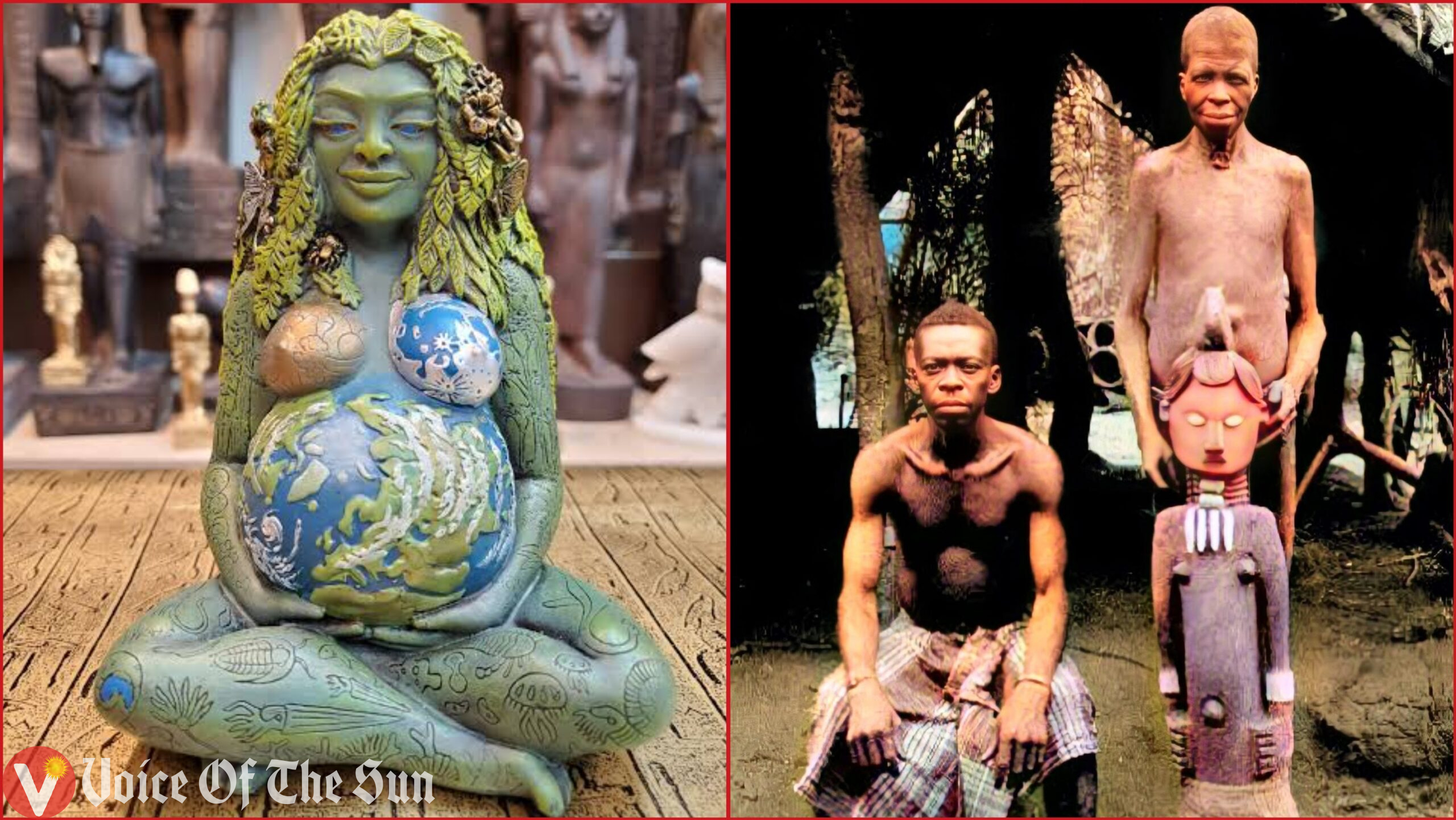
In the last decade or more, the term Odinala has become popular among Ndi Igbo when referring to Igo Mmuo (Igbo Spiritual practices = communing with divinities), which is only an aspect of Odinala.
Many have called these spiritual practices Omenala, while others have maintained that it is Odinala na Omenala. No matter what it is called, one clear thing is that there is a reawakening among the young Igbo, which has seen a resurgence in the practice of various aspects of culture and traditions, such as Igo Mmuo (spirituality), Igba/Iti/Ime Mmanwu (masquerades), Isu asusu Igbo (speaking the Igbo language), Agugu ala (history), among other aspects of our traditions, culture, and spirituality. All of these are what many of our people have put under the umbrella of Odinala and Omenala. However, Odinala means one thing, while Omenala stands for a group of cultural activities practiced under Odinala.
ODINALA:
To dive into the meaning of Odinala, and its practices, we must first understand the etymology of the word in the Igbo parlance; for the truth about any Igbo word or philosophy is found in its etymology – Its root. As such, there are four words that make up the term Odinala, and they are: ‘O,’ ‘DI,’ ‘NA,’ and ‘ALA.’
‘O’ can mean “It, he, she, What, Who,” and is used to point/refer to anything in creation, both living and non-living, before its name is called, or its location is disclosed.
‘DI’ can mean “is” and it is a pointer word, that states that a thing/practice/phenomenon/location exists somewhere.
‘NA’ can mean “At, On, In”, and is also a pointer word, showing the location of a thing/practice/phenomenon/location or thing that exists.
‘ALA’ is then the ecosystem, in which we live. Ndi Igbo understand the word ‘Ala’ to mean various things, which are then intertwined, to mean one thing. Ala is the ‘mother earth’ and a deity (an Mmuo) to us. Ala is also ‘the ground/soil’ to us. Ala is also a ‘piece of land’ to Ndi Igbo. Ala also means a ‘community, town, or region’ to us Ndi Igbo. Whether Ala is a deity (mother earth), the soil, a piece of land, a community, a town, or a region, ‘Ala’ in this context encompasses all, and means ‘Ecosystem’, which is a summation of all living and non-living things in our universe (not just earth).
So, when we bring together the four words explained above into one term ‘ODINALA’, what it means in layman’s terms is: “It/what Is On/At/In the Ecosystem.” Or put it shortly and accurately to fit the Igbo understanding of the word, it would be: “What Is In The Ecosystem,” OR “All ‘What’ there is in the Ecosystem as pertaining Ndi Igbo.”
Now, going forward, let us break down Odinala (All ‘What’ there is in the Ecosystem as pertaining to Ndi Igbo), to the understanding of the layman, as it pertains to the day-to-day practices of those of us who call ourselves Ndi Odinala Igbo.
Firstly, it is important to note that Odinala transcends Igo Mmuo (spirituality, metaphysics, etc.), which has various departments, such as Ichu Aja (sacrifice), Igwo Ogwu (Alchemy), and Afa (Divination), etc. This is to correct the now popular notion that supposes that Odinala Igbo ends with only Igo Mmuo, peddled by the majority of Ndi Igbo in this era.
O di na ala is a collection of all things (animate and inanimate) in the Igbo world and ecosystem. It is the knowledge of and interaction with, all the Mmuo (spirits) and matter (soil, trees, animals, humans, etc.) in our ecosystem. It also encompasses our interaction with the celestial bodies, such as Anyanwu (Sun), Onwa (Moon), and Kpakpakpa Ndu (Stars). O di na Ala transcends spirituality. It is a collection of all the faculties in existence, such as Astrology, Zoology, Biology, Physics, Chemistry, Art, Linguistics, Medicine, Alchemy, Geography, Metaphysics, Food and Nutrition, Spirituality, Faith, and many more. Everything that the Igbo sees, does, and knows of in this ecosystem, is what makes up the Igbo worldview, and this worldview encompasses Igo Mmuo (spirituality and metaphysics), Igwo Ogwu (medicine and alchemy), Agugu Ala (history), Asusu (language), Ama Ala (Geography, culture, tradition, etc.), Omenala (culture and tradition), among many others.
When the Igbo man says that he is an Odinala practitioner, or that “he/she is going back to Odinala,” what it means, in essence, is that he/she is returning to the complete knowledge of the Igbo worldview, understanding of and practical interaction with the universe, Ala. And as such we refer to the study and knowledge of Igbo Odinala to be ‘Igbo Cosmology.’
For a people like Ndi Igbo, who were misled by the Christian missionaries and British Colonizers into abandoning their Odinala (Indigenous worldview and practices), this current wave of Igbo renaissance has opened the eyes of many of us to the vast knowledge buried in our spirituality, culture, traditions, history, geography, herbal medicine, and many more practices of the Igbo society. It has been an adventure for many of us, especially for me, who is a Dibia and an Odinala researcher. On this journey, I, just like many others, have learnt of our family trees and history, the boundaries of our town with other towns, the water bodies in our towns and those in others, the various sacred sites of our ancestors, the proper ways to commune with divinities, the taboos to avoid as Onye Igbo, the history of how our various towns were founded, the various herbs and roots used for physical wellbeing, the herbs and roots used in potentiating medicine for physical and spiritual solutions, the native language of our people, the native food of our people, the cash crops on our lands and the mineral resources beneath our land, how we marry, how we bury our dead and conduct their funerals, what plants are indigenous to our regions and what plants are foreign, the spiritual and ritualistic foundations laid by our ancestors (Ndi Ichie) for our respective families, what gifts we carry from Nne Mmili, what gifts and destiny our respective CHI came to the world with, what type of role AGWU has bestowed on us to play for the society (Dibia, Musician, Doctor, Leader, Inventor, etc.), the specific spiritual and physical gifts passed down to us through our father’s lineage and mother’s lineage, among many other discoveries which we make on our ‘return to Odinala Igbo.’
An Igbo man/woman who is considered an ‘Onye Odinala’ is one who has embraced his Igbo identity and heritage completely, and views himself as ‘Onye Igbo.’ This is because for us, ‘Igbo’ is the identity, language, spirituality, heritage, culture, tradition, food, and worldview. And in summarizing what Odinala is for Ndi Igbo, and to this generation of Ndi Igbo (particularly), it is important to state that Odinala Is not just about slaughtering animals and offering sacrifices to our CHI, Agwu, Ndi Ichie, Ndi Mmili and the Alusi that make up our pantheons. No.!!! Odinala is a complete awareness, knowing, practice, and understanding of all principles and philosophies that make us Ndi Igbo. The aspect/faculty of Igo Mmuo (spirituality) which has taken center stage, and has become the funnel through which Ndi Igbo are returning to Odinala, is vast in scope and will be treated in a subsequent article. However, I must mention that the spiritual, social, and economic benefits of Igo Mmuo for us Ndi Igbo have been enormous in the past two decades (and more), and as such Igo Mmuo deserved its position as the ‘mascot’ which represents the entirety of what Odinala is to the Igbo – A group of practices and knowledge which Omenala is a part of.
OMENALA:
In the heat of the now obvious ‘Igbo renaissance,’ as arguments and counterarguments are been brought forth as to what is going on with the “returning to Odinala na Omelala” campaign, many Ndi Igbo have insisted that the term ‘Omenala’ is the same thing as the term ‘Odinala.’ Some others have maintained that there is no such thing as Odinala, stating that it was a newly invented word used to lure Ndi Igbo to what is derogatorily described as ‘Idolatry.’ All of these arguments stem from mainly Igbo Christians, who have been indoctrinated to either forget basic Igbo philosophies or to work towards tarnishing any progress made at reviving the old lost ways of our ancestors. However, to understand what Omenala is, and its position in the Igbo philosophy and worldview, we must first look at the etymology of the term OMENALA. Present at its root are three Igbo words – ‘OME,’ ‘NA,’ and ‘ALA.’
‘OME’ means ‘Happen(S),’ ‘It Happens,’ ‘Happening (S),’ ‘Event(S) Taking Place,’ ‘Done,’ ‘To Be Done,’ ‘Doing’ Or ‘Practices Being Carried Out.’
‘NA’ can mean “At, On, In”, and is also a pointer word, showing the location of a thing/practice/phenomenon/location or thing that exists.
‘ALA’ is then the ecosystem, in which we live. Ndi Igbo understand the word ‘Ala’ to mean various things, which are then intertwined, to mean one thing. Ala is the ‘mother earth’ and a deity (an Mmuo) to us. Ala is also ‘the ground/soil’ to us. Ala is also a ‘piece of land’ to Ndi Igbo. Ala also means a ‘community, town, or region’ to us Ndi Igbo. Whether Ala is a deity (mother earth), the soil, a piece of land, a community, a town, or a region, ‘Ala’ in this context encompasses all, and means ‘Ecosystem’, which is a summation of all living and non-living things in our universe (not just earth), as seen by Ndi Igbo.
So, when we bring these three words explained above into one term ‘OMENALA,’ what it will then mean in layman’s terms is: “Practices That Happens On/In the Igbo ecosystem.” Or put it accurately to fit the Igbo understanding of the word, it would be: “Practices that happen in the Igbo ecosystem, as pertaining culture and traditions.”
Omenala Igbo then goes ahead to mean the practiced cultures and traditions of the Igbo people, in their various regions and locations of Igbo land. These practices may differ from region to region, and in this case, are reduced to ‘O di be Ndi’ (that Omenala which is present and practiced in only a particular community, town, or region of Igbo land). Omenala, as a people’s culture, entails practices like Inu Nwanyi and Inu Di (traditional marriage rights), Ogbo na Otu (age-grade associations), Ikwa Ozu (burial and funeral), Iba Nwa Afa (naming a newborn child), Ime/Igba Mmonwu (Masquerade), Ichi echichi (taking traditional titles), Igu Afo (celebrating the beginning of a new year) among various classes of Omenala practiced in different parts of Igbo land; there are also parts of Igo Mmuo that can be considered to be Omenala, as Omenala as a subsect of Odinala, is intertwined with Igo Mmuo practices, such as Imedo Ala/Alusi (offering rituals to Ala, the mother deity/earth of a particular town, and other Alusi in that town). The Igbo cosmology is so unique that there is hardly any Omenala in any given town that does not have an element of Igo Mmuo – for once a man raises Oji (Kolanut) and beckons on CHIUKWU and his ancestors, Igo Mmuo (communing with divinity) has been initiated, and he has a right to refer to the ritual either as ‘Igo Mmuo’ or ‘Omenala.’ This points to a thin line between the terms Odinala and Omenala, and as such we must discuss further to understand if there are any differences between the two.
Is Odinala Different From Omenala?
The problem faced by the modern Igbo is the difficulty of understanding the foundational words and principles of our philosophy – an impediment that arises from operating with a ‘colonial mindset,’ where an average Igbo man/woman chooses to define Igbo terms with a ‘supposed’ English equivalent; but are quick to forget that the Igbo language is so deep and unique that it often loses its true meaning when most attempts at translation to the English language are made. Some clear examples are the words: (1) CHIUKWU which was wrongly translated to the ‘Christian God,’ (2) Nze which was wrongly translated to mean ‘Chief,’ and (3) Dibia which was wrongly translated to mean ‘native doctor.’
This above-mentioned psychology is the reason why the modern Igbo man finds It difficult to understand the interconnectedness of Odinala and Omenala. The twisted definition of Odinala to mean ‘Idolatry’ by Igbo Christians, or just ‘rituals and spirituality’ by lay Odinala practitioners and new returnees; and the definition of Omenala to mean ‘ordinary culture and tradition,’ with Igbo Christians stripping it of every fiber of ‘Igo Mmuo,’ just so they can participate, or identify with it. But no matter their interpretations, it is important to note and for all to know that Odinala is intertwined with Omenala, just like a father or mother is intertwined with their children, who carry their DNA and blood.
Odinala can be likened to a university (like the University Of Nigeria Nsukka), while Omenala is but one faculty in that ‘Odinala University,’ where Omenala has various departments and multiple courses. Will you then say that Omenala is different from Odinala, in the sense that they have no similarities, and that Odinala is a set of ‘evil idolatry practices’ that should be thrown away and dissociated from Omenala? Of course, the answer is NO. As such, Omenala, as a group of practices influenced by our environment and our interactions with nature and one another, is a tiny fraction of Odinala.
Many Ndi Igbo, including myself, have come to use the combined term of ‘Odinala na Omenala’ to group all the practices, both physical, spiritual, cultural, traditional, metaphysical, and imagined, in the Igbo worldview – for they are two intertwined for them to be separated. If there is no Odinala, then there can be no Omenala. Odinala is responsible for our spiritual and physical existence here in Uwa (universe), while Omenala is responsible for the activities which our existence as Mmadu applies to relate with one another, and with the universe (Ala) with all her abundance towards us.
In conclusion, I would say that the perfect saying to capture Odinala na Omenala, would be: “Abum Onye Igbo ghotara ma marakwa ife di na Ala anyi, ma na emekwa Omenala nke ndi nna na nne anyi ha wubelu/bidoro I ji were kwalite ndu na obodo anyi”- I am an Igbo who understands and knows our ecosystem, and also practices the cultures and traditions which our ancestors instituted/started to foster social/spiritual/physical/metaphysical/life in our town/region.
Going by my above submission, Odinala is not different from Omenala. Rather Odinala birthed Omenala, and uses Omenala to express itself among Ndi Igbo.
This Article Was Written By Chuka Nduneseokwu, Editor-In-Chief, Voice Of The Sun
Please Support and DONATE To Us. Help Us In Preserving Our History, Culture and Beliefs as Ndi Igbo. CLICK HERE to assist us financially.
-
![How Igbo People Started Becoming Christians 181 Years Ago (1841–2022): A Brief History Of Christianity In Ìgbòland [Part I] How Igbo People Started Becoming Christians 181 Years Ago (1841–2022): A Brief History Of Christianity In Ìgbòland/Among The Ìgbò [Part I]](https://voiceofthesun.com/wp-content/uploads/2022/07/How-Igbo-People-Started-Becoming-Christians-181-Years-Ago-1841–2022-A-Brief-History-Of-Christianity-In-Igboland-Among-The-Igbo-Part-I-1-400x240.jpg)
![How Igbo People Started Becoming Christians 181 Years Ago (1841–2022): A Brief History Of Christianity In Ìgbòland [Part I] How Igbo People Started Becoming Christians 181 Years Ago (1841–2022): A Brief History Of Christianity In Ìgbòland/Among The Ìgbò [Part I]](https://voiceofthesun.com/wp-content/uploads/2022/07/How-Igbo-People-Started-Becoming-Christians-181-Years-Ago-1841–2022-A-Brief-History-Of-Christianity-In-Igboland-Among-The-Igbo-Part-I-1-80x80.jpg) Igbo History and Origins3 years ago
Igbo History and Origins3 years agoHow Igbo People Started Becoming Christians 181 Years Ago (1841–2022): A Brief History Of Christianity In Ìgbòland [Part I]
-
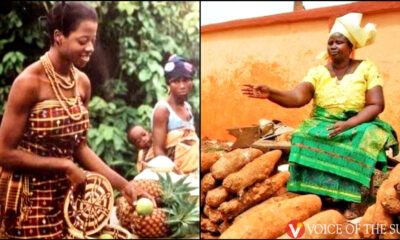
 Igbo Cultures And Traditions3 years ago
Igbo Cultures And Traditions3 years agoThe Four Igbo Market Days and Their Significance In Odinala na Omenala ÌGBÒ
-
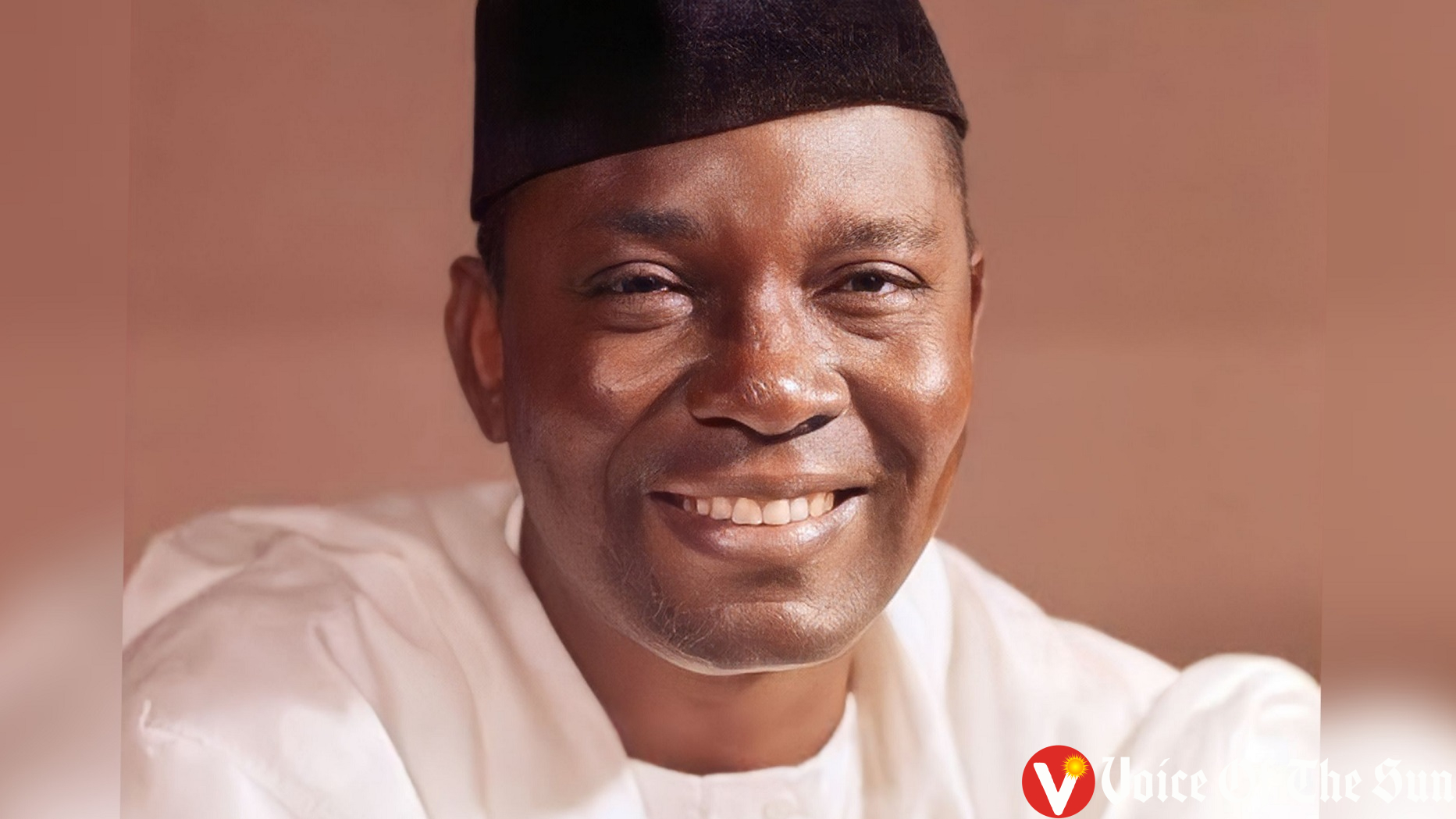
 Igbo History and Origins2 years ago
Igbo History and Origins2 years agoNnamdi Azikiwe: Legacy of a Nigerian Nationalist And Igbo Icon
-
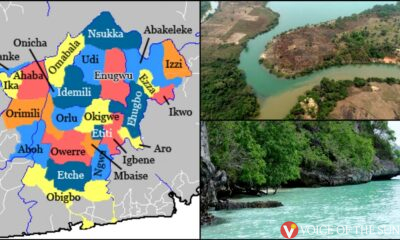
 Igbo News3 years ago
Igbo News3 years agoIgbo Land Is Not Landlocked – We Have The Deepest And Shortest Access To The Atlantic Ocean
-
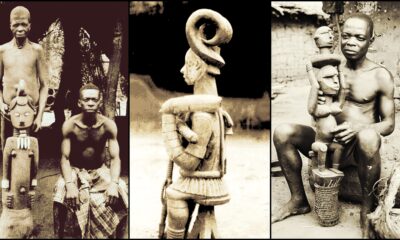
 Igbo Spirituality2 years ago
Igbo Spirituality2 years agoÌgbò Ancestors Did Not Worship Idols and Demons – A Journey Into Ịgọ Mmụọ In Odinana Ìgbò
-
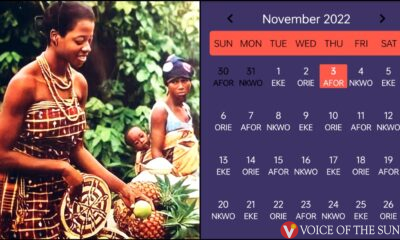
 Igbo Cultures And Traditions2 years ago
Igbo Cultures And Traditions2 years agoWhich Igbo Market Day Is Today – Get The Complete Igbo Calendar
-
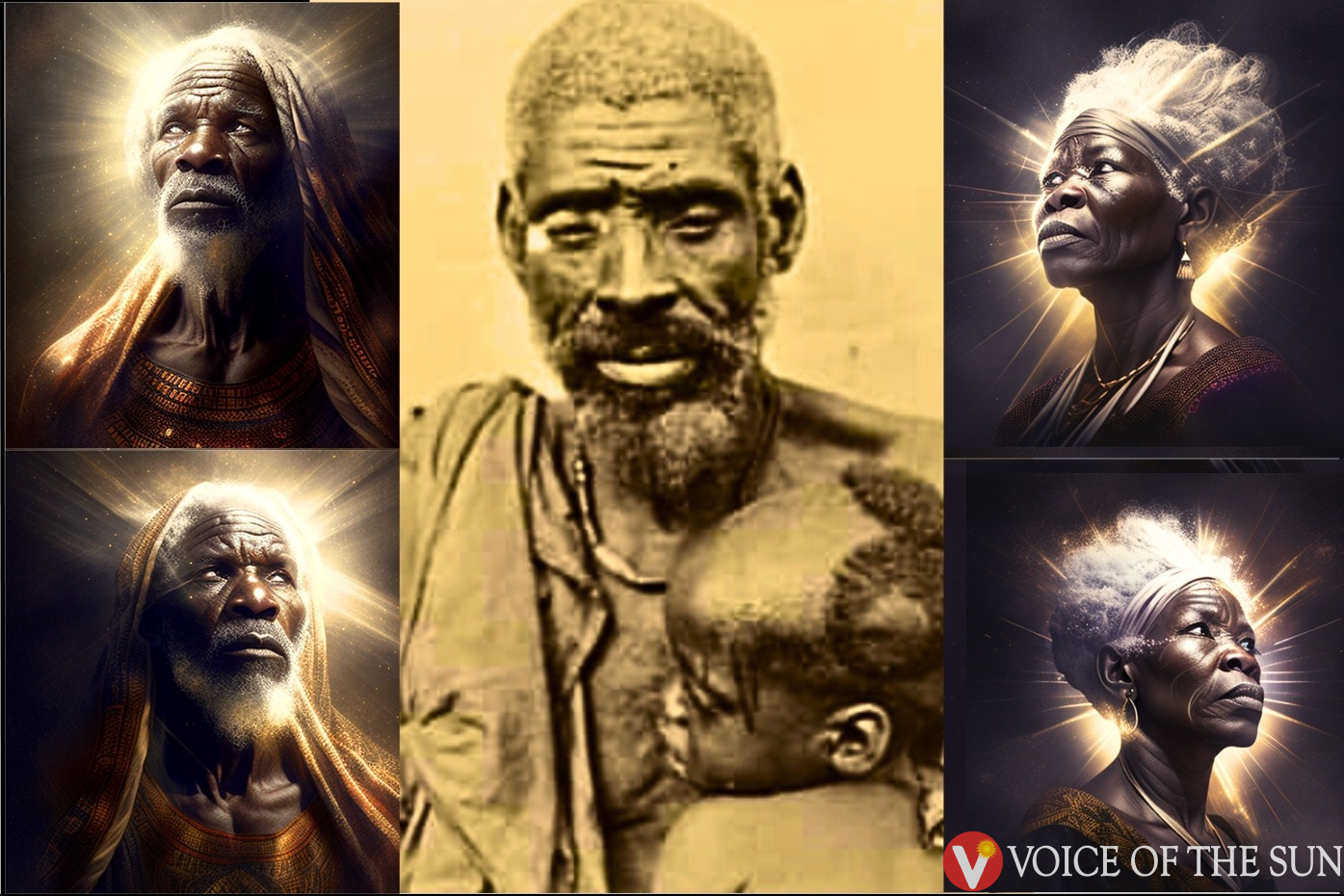
 Igbo Spirituality2 years ago
Igbo Spirituality2 years agoUnderstanding Ndị Ịchie In Igbo Cosmology: Who Are Ndi Ichie In Odinana na Omenana Ìgbò?
-
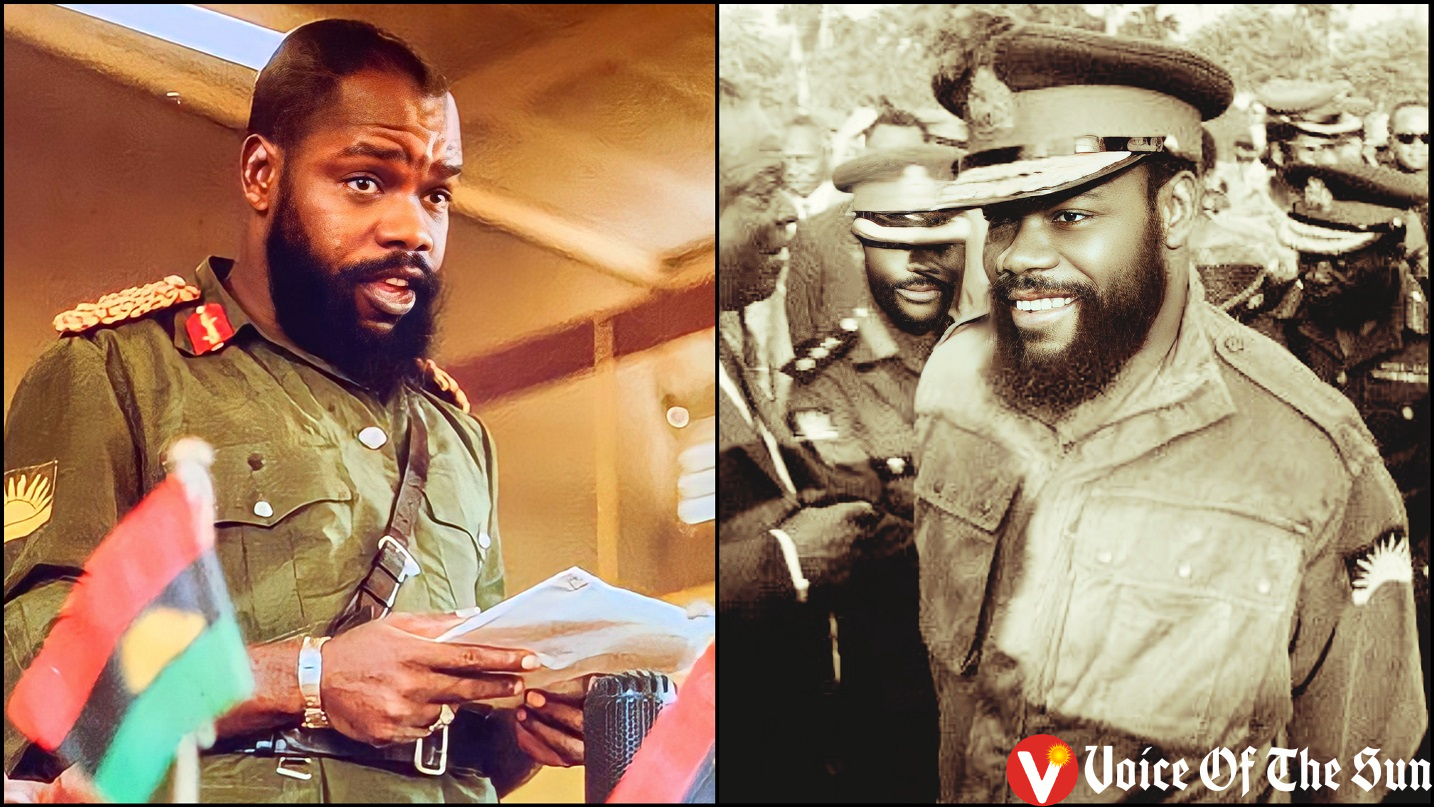
 Igbo History and Origins2 years ago
Igbo History and Origins2 years agoChukwuemeka Odumegwu Ojukwu: The Life And Legacy Of An Igbo Hero
